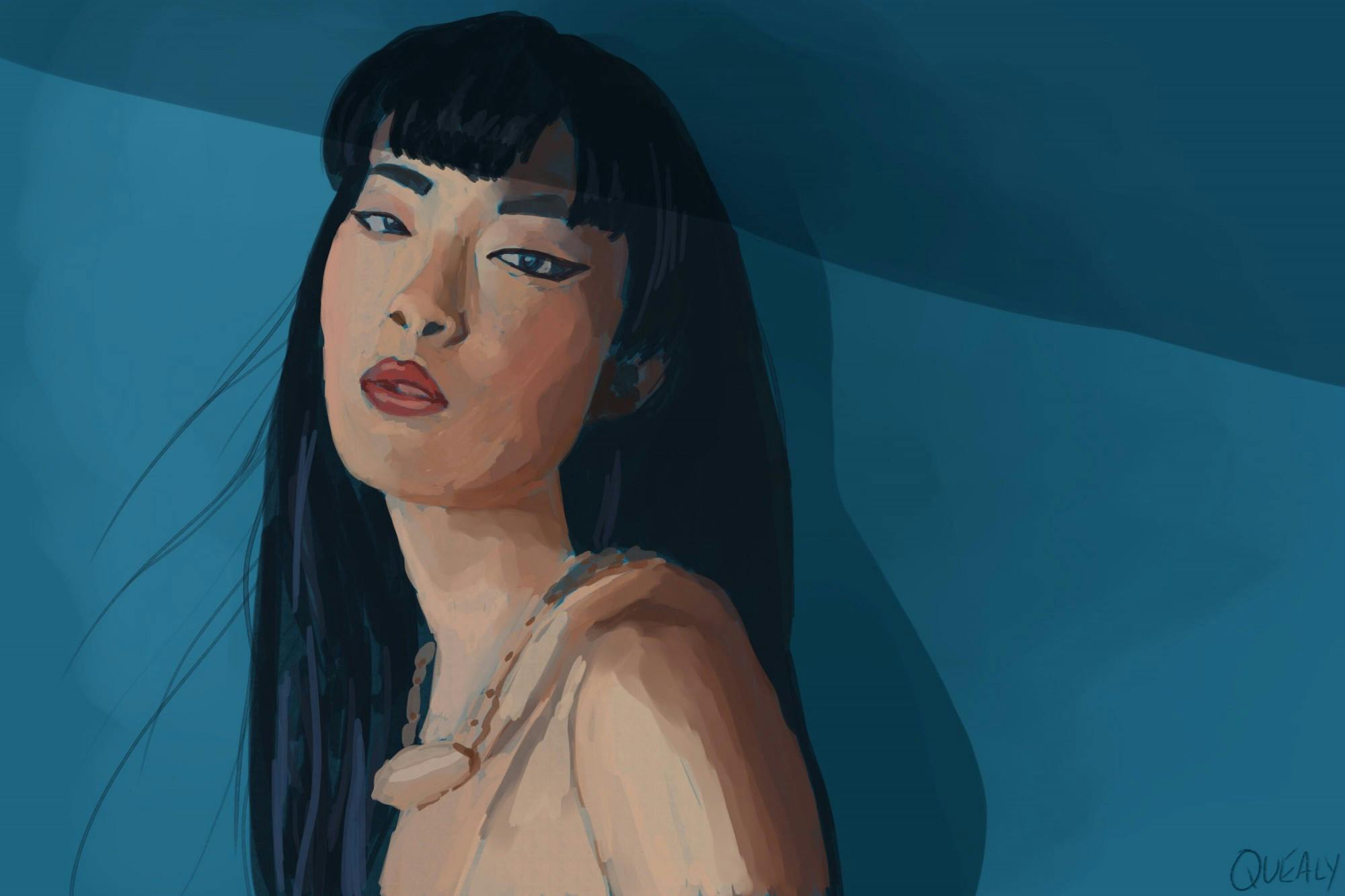When the lights dimmed in the Boston Royale, the crowd immediately went silent. A figure walked out from stage right, dressed in a red suit and a red coat with exaggerated shoulder pads. As Rina Sawayama struck her starting pose and the opening chords of “Dynasty” began to play, the crowd erupted in cheers.
The Boston show of pop star Rina Sawayama’s Dynasty Tour –– delayed twice due to the COVID-19 pandemic –– finally took place on Thursday, May 5. After a great opening set from local Boston drag queen and DJ Coleslaw, Sawayama began her performance, blowing the audience away. The Dynasty Tour was not just a mere showcase of Sawayama’s latest critically acclaimed album, “SAWAYAMA”; it was a full theatrical performance.
The show was held at the Boston Royale, the perfect venue for a show like this. While it was relatively small with just two floors, around 1,300 people were still able to fit in the venue, meaning that I was just one member of a high-energy crowd.
The smaller size of the venue meant that Sawayama was able to be vulnerable with the crowd, and as an audience member, I felt like I could also partake in this tender vulnerability. Whether she was singing about queer joy in “Chosen Family,” her struggles with depression in “Akasaka Sad” or coming out and being pansexual in “Cherry,” Sawayama welcomed the crowd into her struggles with meaningful lyrics that incited reflection in this listener.
She continued this vulnerability when presenting a new song to the audience about her personal struggles. She talked about immigrating to the United Kingdom with her mother in the 1990s, growing up with a single mother and feeling like she could never live up to her mother’s expectations.
“My mum recently… told me she was proud of me,” Sawayama joked with the audience. “I’m 31 years old, god damnit!”
She performed this new song more intimately, staying in one spot without her backup dancers. The song built from a gentle start into a powerful chorus that felt like it had soft rock influences. If songs like “Who’s Gonna Save U Now?”, “STFU!” and “XS” have proven anything, it’s that Sawayama’s voice works incredibly well with pop-rock music — in “XS,” for example, Sawayama belts along to the electric guitar riff perfectly. Her new song, which she did not title at the show, hints at a new album — which she teased is coming soon — that may further develop her voice in this genre.
Beyond her voice, what has always drawn me to Sawayama, especially her 2020 album “SAWAYAMA,” is her lyrics and themes. Her identity as a Japanese British pansexual women make her music feel like it’s for queer people and the Asian diaspora. She sings about racism and microaggressions in “STFU!,” about generational trauma from her immigrant parents in “Dynasty” and about her frustrations with Western perceptions of Japan in “Tokyo Love Hotel.”
“There are places in Japan called love hotels, where people just go to have sex,” Sawayama told Apple Music. “I felt like these tourists were treating Japan as a country or Tokyo as a city in that way… They’ll say, ‘That was so amazing, I love Tokyo,’ but they don’t give a shit about the people or don’t know anything about the people and how difficult it is to grow up there.”
During Asian American and Pacific Islander Heritage Month in particular, it’s so refreshing to hear someone sing about something so deeply personal and also so deeply relatable. It’s also refreshing to feel like, for once, that as an Asian American, I am her target audience.
Pop music is stereotypically a commercial genre –– one that people assume to lack depth and creativity. Sawayama, with her genre-bending but still distinctly pop album “SAWAYAMA,” challenges these beliefs. Sawayama tackles issues of race and class, producing an ode to the loss of a close friendship and encouraging self-love and confidence in the listener. She’s able to dive into these intense issues all while still making the audience want to get on their feet.
Not only did Sawayama make the audience want to dance, she danced too. Her two backup dancers were not background noise or distractors; they were integral parts of the show. Sawayama would often pause singing, allowing an instrumental part of a song to continue on a little longer so that she could dance with the dancers in perfectly choreographed synchrony. The dancing teased at sapphic queerness in “Snakeskin” when the two dancers curled themselves around Sawayama. It paid homage to Sawayama’s drag queen influences in “XS” with the incorporation of some voguing techniques. It was purely fun in “STFU!” when the dancers just whipped their hair around to the beat of the electric guitar solo.
Sawayama was a gracious performer, giving time throughout her whole set for her guitarist, her drummer and both of her dancers to shine individually. At one point, Sawayama thanked the audience for streaming her album and for making her voice feel heard. It seemed like it was cathartic for her to be in this room, watching music that comes from her heart resonate with so many people. Simultaneously, it was cathartic for people like me in the audience to feel seen at such a big scale, to feel so connected.
Sawayama’s show was memorable not just because of the choreography, the lyrics, the stage setup or even her voice. It was memorable because of her stage presence and who she is as a performer. She was able to balance interacting with the audience and performing each song to the fullest, making each moment feel simultaneously very personal and broadly connected to everyone in the room.
Rating: ★★★★★
Jessica Sun Li '24 is a sociology major and English minor from the suburbs of Chicago. She was the 180th Directorate's arts editor, and her passion project is the "Dear Mirror" column. Outside of The Dartmouth, she is involved in the figure skating team and sociology research. She really wants to adopt a cat.




